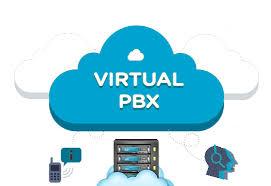The world of business communication has been fundamentally reshaped by the advent of the Virtual Pbx system, a cloud-based telephony solution that has rendered traditional, on-premise hardware obsolete for many organizations. A Virtual Private Branch Exchange (PBX) is a sophisticated phone system that is hosted entirely by a service provider in the cloud, delivering advanced call management features over the internet using Voice over Internet Protocol (VoIP) technology. This innovative approach liberates businesses from the costly and cumbersome physical PBX boxes that once resided in office server closets. Instead, companies can access a full suite of enterprise-grade phone features—such as auto-attendants, call routing, and voicemail-to-email—through a simple internet connection, managed via an intuitive web-based portal. This technological shift is a cornerstone of modern business agility.
Unlike traditional PBX systems that require significant upfront investment in hardware, complex installation, and ongoing maintenance by specialized technicians, a virtual PBX operates on a subscription-based model. This transforms a large capital expenditure (CapEx) into a predictable and scalable operational expenditure (OpEx). The core infrastructure, including servers and software, is owned, managed, and continuously updated by the provider in their secure data centers. This means businesses are always on the latest version of the technology without any effort or additional cost. The only on-site hardware required are IP-enabled phones or, increasingly, no dedicated hardware at all, as calls can be made and received directly from computers (using softphones) or mobile devices through a dedicated app, offering unparalleled flexibility.
The benefits of adopting a virtual PBX system are manifold, extending far beyond simple cost savings. Scalability is a primary advantage; businesses can add or remove phone lines and users in minutes through an online dashboard, perfectly matching their communication needs to their current size without overprovisioning. This flexibility is crucial for growing companies or those with seasonal fluctuations in staffing. Furthermore, virtual PBX systems are inherently designed to support a distributed workforce. Employees can be located anywhere in the world and still be connected to the central office phone system, with a consistent business number and seamless call transferring capabilities. This has made it an indispensable tool for enabling the remote and hybrid work models that define the modern business landscape.

Join our community to interact with posts!